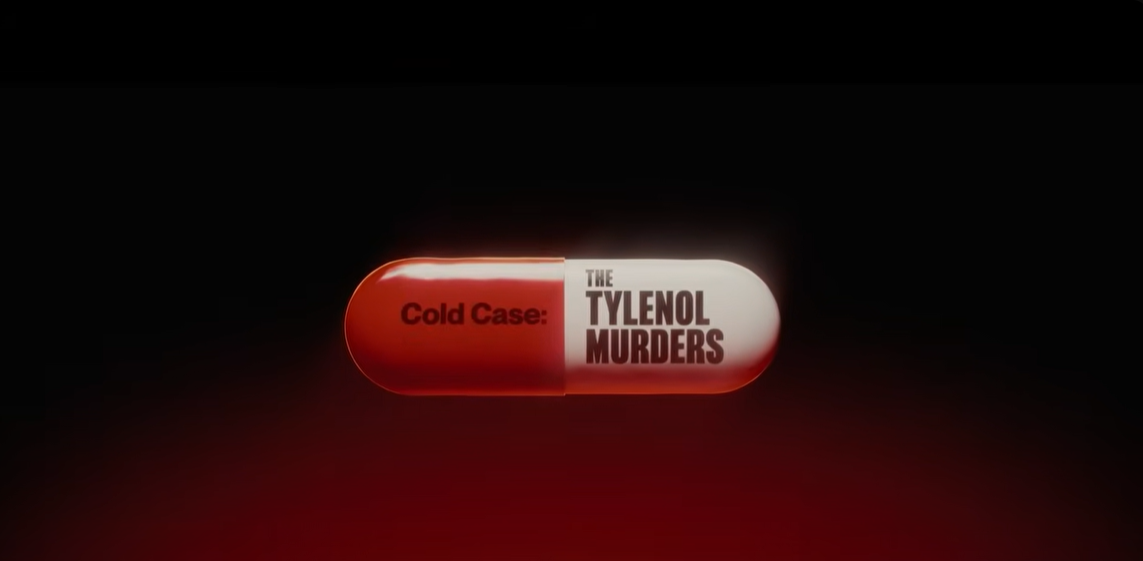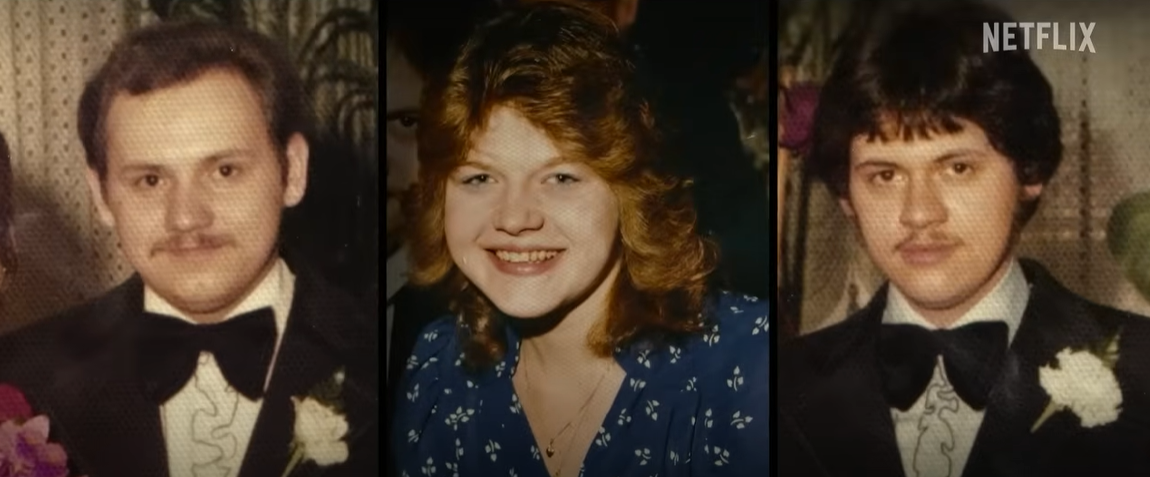Netflix’s Chilling Dive into the Tylenol Murders: An Unsolved Case That Shook America
Introduction
(video Netflix)
In 1982, a wave of shocking and seemingly random deaths swept across the Chicago area, striking fear into the heart of every American household. Perfectly healthy individuals suddenly collapsed and died after taking Tylenol capsules—an everyday, over-the-counter painkiller trusted by millions. But these pills had been tampered with—laced with deadly potassium cyanide. The incident marked the birth of one of the most unsettling unsolved crimes in American history. More than four decades later, Netflix reopens the case with Cold Case: The Tylenol Murders, a gripping new true-crime docuseries that reexamines this chilling mystery through modern lenses.
Netflix’s new documentary is not just another true-crime retelling—it’s a deeply researched, emotionally compelling, and forensically rich series that draws viewers into the gravity and terror of the case. Featuring exclusive interviews, newly released evidence, and fresh expert analysis, the show reignites the conversation around one of the most consequential public safety scares in U.S. history.
This article will unpack the background of the Tylenol murders, dive into the central unanswered questions, highlight suspects and forensic developments, and explain why this Netflix series is more relevant—and disturbing—than ever.
The Tylenol Murders: A Deepening Mystery
In the fall of 1982, seven people in the Chicago metropolitan area died suddenly after ingesting Extra-Strength Tylenol capsules. The victims included 12-year-old Mary Kellerman, 27-year-old Adam Janus, and two of his family members who unwittingly consumed pills from the same contaminated bottle while mourning his death. Within hours of taking the medication, they were dead.
Autopsies quickly confirmed a terrifying truth: the capsules had been tainted with lethal doses of potassium cyanide. Someone had removed Tylenol bottles from store shelves, inserted the poisoned capsules, and returned them to stores for unsuspecting customers to purchase. The randomness of the attack made it even more horrific. No one was safe.
In response, Johnson & Johnson launched an unprecedented recall of over 31 million bottles nationwide. Panic swept the country. Consumers discarded medicine cabinets full of pills, and confidence in the pharmaceutical industry plummeted. Within days, the federal government and private sector began implementing sweeping changes—introducing tamper-evident packaging, improving supply chain surveillance, and strengthening laws around product safety.
Despite a vast investigation involving the FBI, FDA, and local law enforcement, the case remains officially unsolved to this day. The Tylenol murders remain a grim symbol of the potential vulnerability in everyday life.

Why Netflix Is Revisiting the Case Now
The rise in popularity of true-crime content has shown that audiences are not only entertained by mystery—they’re seeking justice. Netflix’s Cold Case: The Tylenol Murders goes beyond dramatization. It offers fresh insights, exclusive interviews, and new revelations that question whether the killer might still be at large.
What Makes the Series Stand Out:
- Victim-focused storytelling: Heart-wrenching interviews with the families left behind.
- Fresh leads and perspectives: Previously ignored clues and overlooked suspects.
- Evolution of investigative tools: From outdated analog methods to today’s digital forensic innovations.
- Insider commentary: Federal agents, prosecutors, and journalists recount investigative missteps and triumphs.
The show reignites public interest and casts a critical light on whether law enforcement missed key opportunities—or perhaps prematurely narrowed in on a suspect.
Frequently Asked Questions About the Tylenol Murders
1. Who was suspected of the Tylenol murders?
James W. Lewis remains the most prominent suspect. He sent an extortion letter to Johnson & Johnson demanding $1 million to stop the killings and was subsequently convicted of extortion. However, due to lack of direct evidence connecting him to the tampered bottles, he was never charged with murder. Investigators have long held suspicions, but solid proof has remained elusive.
2. How did the murders reshape the pharmaceutical industry?
The aftermath led to foundational reforms:
- Tamper-evident packaging became mandatory.
- Federal anti-tampering laws were enacted.
- New product testing protocols and labeling standards were developed.
These changes revolutionized consumer safety standards around the globe.
3. Does the Netflix series uncover new evidence?
Yes. The documentary features:
- Newly declassified documents
- Unreleased footage and police tapes
- Interviews with investigators who now reveal past limitations and unexplored leads
Although no definitive answers are presented, the evidence adds weight to existing suspicions and expands the conversation.
4. What motivated the poisonings?
To this day, the killer’s motive is unclear. Theories include:
- Extortion for financial gain
- A desire for psychological control or chaos
- Acts of random domestic terrorism
The arbitrary nature of the victim selection supports the theory that fear was the intended outcome.
5. Were there any copycat crimes?
Yes. The Tylenol murders sadly inspired a wave of product tampering incidents. Some were deadly; others were hoaxes. The public’s trust in consumer goods was forever changed, and law enforcement began treating all tampering reports with urgent seriousness.
Core Themes Explored in the Netflix Documentary
1. The Human Toll
The series devotes substantial time to the emotional aftermath experienced by the victims’ families. These interviews serve as reminders that this is not just a cold case—it’s a human tragedy that shattered lives and changed families forever.
2. Law Enforcement Frustration
The investigation faced massive challenges due to the tools of the time. No surveillance footage, no digital records, no DNA databases. The result: a trail that went cold before it had a chance to heat up.
3. Media Frenzy and Nationwide Panic
The murders dominated headlines. Sensational media coverage added to public hysteria. People refused to take medicine, grocery stores pulled products, and pharmacies went under. The result was a cultural shift toward safety-first consumerism.
4. Corporate Crisis Management
Johnson & Johnson’s response is still studied in business schools. Their swift, transparent, and consumer-first approach—including halting production, issuing public warnings, and redesigning packaging—helped regain public trust.
5. Modern-Day Forensics
Technological advancements in DNA analysis, cyber investigation, and chemical tracing offer new hope. The series shows how investigators are reexamining old evidence through a new lens, with the potential for long-overdue answers.

Why the Case Still Matters
The Tylenol murders weren’t just about poisoned pills—they were about the sudden collapse of consumer trust. They exposed a gaping vulnerability in how products were made, sold, and consumed. Today, tamper-evident packaging and stringent safety protocols are the norm, but in 1982, those protections didn’t exist.
Justice has never been served. Families never received closure. The killer was never caught. Netflix’s series revisits that painful reality and raises important questions: How could such a high-profile case remain cold? And what can be done now to prevent similar tragedies?
Key Takeaways from Netflix’s Cold Case: The Tylenol Murders
- The investigation isn’t over: Advances in forensic science could still yield answers.
- It redefined consumer safety: From how we buy medicine to how laws are written.
- Corporate transparency matters: Johnson & Johnson’s actions became a crisis-management benchmark.
- True crime with purpose: The series goes beyond storytelling to shine a light on a case that still matters.
Whether you’re fascinated by criminal investigations or concerned about public safety, this series offers both depth and urgency.
Conclusion
Cold Case: The Tylenol Murders is more than a documentary—it’s a sobering reminder of how quickly everyday life can be upended by one anonymous act of evil. Netflix has crafted a docuseries that is investigative, empathetic, and socially resonant. It brings justice back into the conversation and puts pressure on those in power to reopen the case with the tools of today.
For true-crime enthusiasts, history buffs, or anyone who remembers the terror of 1982, this series offers insight, heartbreak, and the hope that truth still matters—even after four decades.
Notes
Meta Description: Netflix’s Cold Case: The Tylenol Murders investigates one of America’s most chilling unsolved crimes. Learn about the victims, suspects, forensic evidence, and why this case still haunts a nation.
10 Tags:
- Tylenol murders Netflix
- Cold case documentary
- Unsolved true crime
- Cyanide poisoning case
- Netflix true crime series
- James W. Lewis suspect
- Johnson and Johnson crisis
- 1982 Tylenol case
- Product tampering history
- Cold Case: The Tylenol Murders
5 Longtail Tags:
- Netflix series on Tylenol murders
- Who poisoned Tylenol in 1982
- Cyanide-laced Tylenol documentary
- Tylenol murders true crime series
- Tylenol killings unsolved Netflix show
Strategies to Consider
- Leverage Emotional Storytelling: Highlight personal narratives for emotional connection.
- Optimize for Featured Snippets: Use lists, questions, and bolded keywords for SEO prominence.
- Embed Multimedia: Add polls, trailers, or related videos to enhance engagement.
- Target Evergreen Keywords: Use lasting search terms like “famous unsolved crimes” or “true crime Netflix shows.”
- Cross-Link Related Content: Connect to similar articles to improve session duration and SEO.
